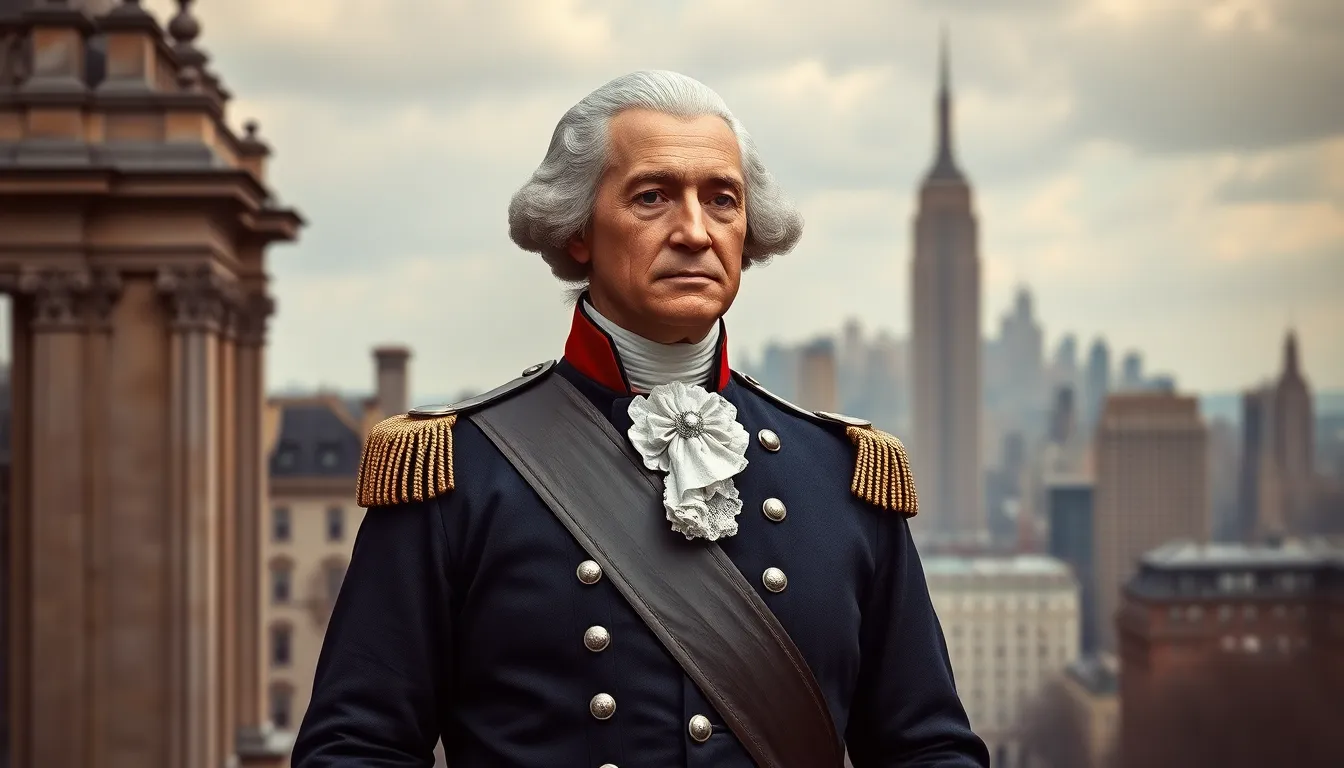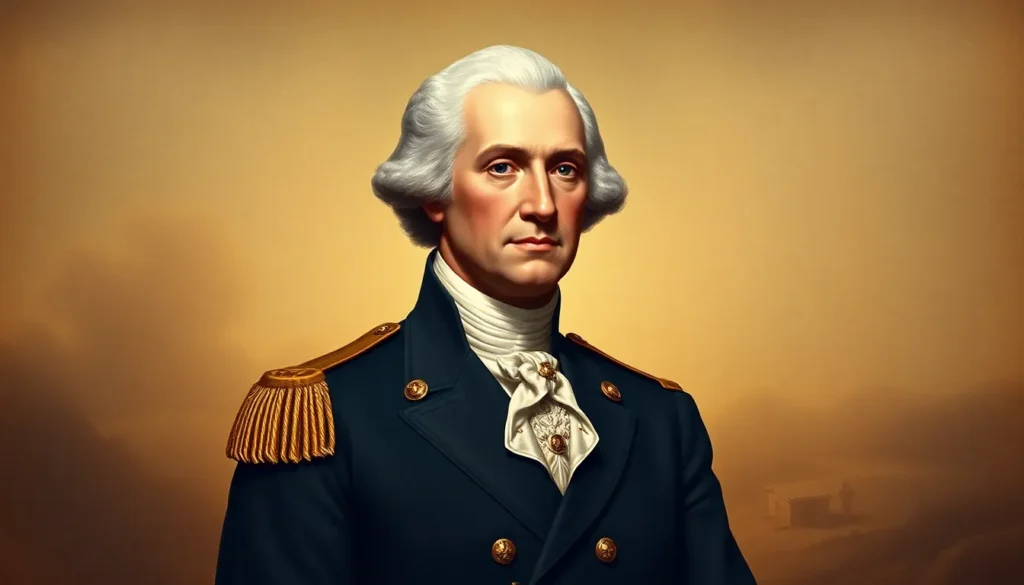Table of Contents
ToggleGeorge Washington, the man who could’ve been king but chose to be president, led the United States through its formative years. But just how long did he hold the highest office in the land? Spoiler alert: it wasn’t a weekend getaway. Washington served as president for a solid eight years, from 1789 to 1797, setting a precedent that would shape the future of the presidency itself.
Imagine the pressure of leading a fledgling nation while trying to avoid the pitfalls of tyranny. Washington navigated this tricky terrain with the grace of a seasoned diplomat and the charisma of a Revolutionary War hero. His tenure laid the groundwork for a democratic legacy, proving that even the Founding Fathers knew a good gig when they saw one. Buckle up as we dive into the details of Washington’s presidential journey and its lasting impact on America.
Overview of George Washington’s Presidency
George Washington served as the first president of the United States from 1789 to 1797. His presidency lasted two full terms, totaling eight years. During this period, he faced numerous challenges while establishing the foundation of the new government.
Leadership required Washington to navigate a young nation filled with uncertainty. Addressing issues such as federal authority and state rights, he laid the groundwork for a balanced governmental structure. Concerns over potential tyranny influenced his decisions, prompting him to step down after two terms to prevent the consolidation of power.
Diplomacy played a crucial role in his administration. Washington appointed talented individuals, including Alexander Hamilton and Thomas Jefferson, to key positions. Their diverse perspectives contributed to addressing economic and foreign policy challenges.
Precedents set by Washington became cornerstones for future presidents. He established a cabinet system and prioritized the importance of a loyal opposition in politics. Judicial independence also gained prominence during his presidency, with the establishment of the Supreme Court as a separate entity.
Washington’s legacy endures through his commitment to democratic ideals. His reluctance to seek a third term solidified the concept of limited presidential power. The Farewell Address emphasized unity and warned against political factions, shaping America’s political discourse for years to come.
Overall, Washington defined the presidential role while navigating a period of profound change, influencing the trajectory of the United States. His contributions remain integral to American history and governance.
Duration of Presidency

George Washington served as president for a total of eight years, making significant contributions during this formative period in American history. His presidency began on April 30, 1789, and concluded on March 4, 1797.
Official Start and End Dates
Washington officially commenced his term on April 30, 1789. The inauguration took place in New York City, then the nation’s capital. His presidency ended on March 4, 1797, when John Adams succeeded him. During this time, Washington navigated numerous challenges as the nation’s first leader.
Length of Terms
Washington served two full terms in office, aligning with the standard presidential term of four years. He effectively set the precedent for a two-term limit, which later became part of the 22nd Amendment. The choice to step down after two terms established a vital principle for future presidents.
Historical Context
George Washington’s presidency spanned from April 30, 1789, until March 4, 1797, a critical time in shaping the United States.
Events During Washington’s Presidency
Significant events marked Washington’s presidency. The Judiciary Act of 1789 established the federal judiciary system, ensuring judicial review. The Whiskey Rebellion in 1794 demonstrated the federal government’s authority over states and citizens. The Jay Treaty in 1794 helped resolve lingering tensions with Great Britain and secured trade relations. Washington’s Proclamation of Neutrality in 1793 set the foundational foreign policy stance against entanglement in European conflicts. The establishment of political parties began during his administration, sparked by differing views from his cabinet members.
Challenges Faced
Washington confronted numerous challenges while in office. He navigated conflicts between federal and state powers, striving to maintain balance. Economic instability posed another threat, leading to actions addressing national debt and establishing a stable currency. Persistent tensions with Native American tribes also surfaced, impacting westward expansion. Washington’s leadership was tested by international strife, particularly between Britain and France, complicating diplomatic relations. His administration struggled to unify a nation with diverse interests and regional priorities, yet his decisions laid vital groundwork for future governance.
Impact of Washington’s Presidency
Washington’s presidency established a pivotal foundation for the United States. His leadership set precedents that continue to influence the office today.
Legacy and Leadership
Washington’s legacy is defined by his commitment to unity and strong governance. He led by example, showing resilience amid national challenges. The establishment of a cabinet system reinforced collaborative decision-making among advisors. His Farewell Address served as a guide for future leaders, emphasizing national unity over political factions. Washington’s decision to step down after two terms highlighted the importance of limited presidential power, influencing successors’ approach to leadership.
Influence on Future Presidents
The influence of Washington on future presidents is profound and lasting. Each president followed aspects of his precedent-setting actions, especially regarding term limits and cabinet governance. He demonstrated the significance of character and integrity in leadership. Presidents like Thomas Jefferson and Abraham Lincoln drew inspiration from Washington’s policies and approach to national unity. His warning against divisive political parties remains relevant, shaping the political landscape long after his tenure.
George Washington’s presidency marked a transformative era in American history. His leadership laid the groundwork for a stable government and established vital precedents that guide the nation today. By stepping down after two terms he reinforced the principle of limited presidential power which remains a cornerstone of American democracy.
Washington’s emphasis on unity and collaboration continues to resonate in contemporary politics. His Farewell Address serves as a timeless reminder of the importance of national cohesion over partisan divisions. The impact of his presidency is evident in the enduring principles of governance he championed and the inspiration he provided to future leaders. Washington’s legacy as a foundational figure in the United States is undeniable and his influence will persist for generations to come.



